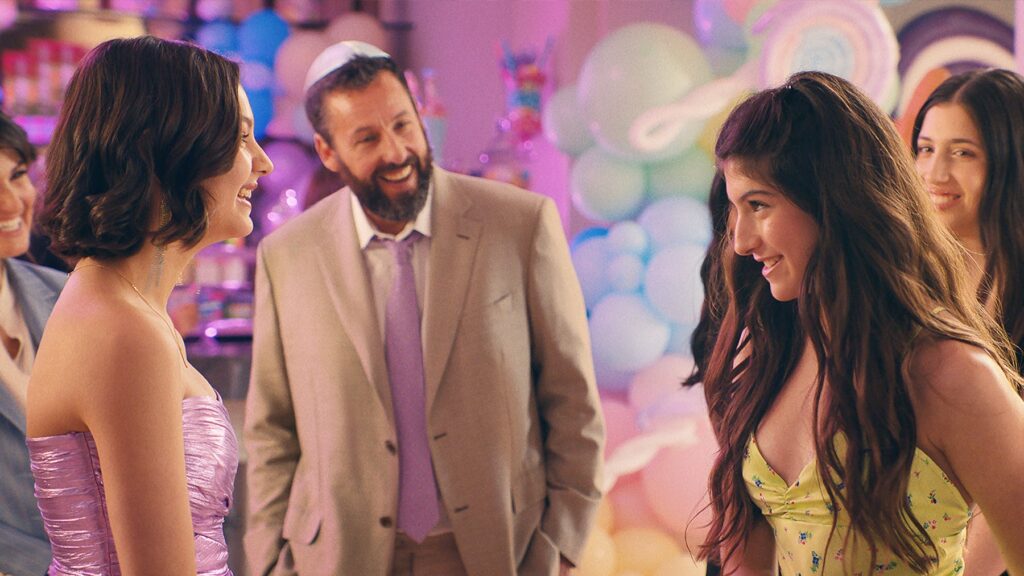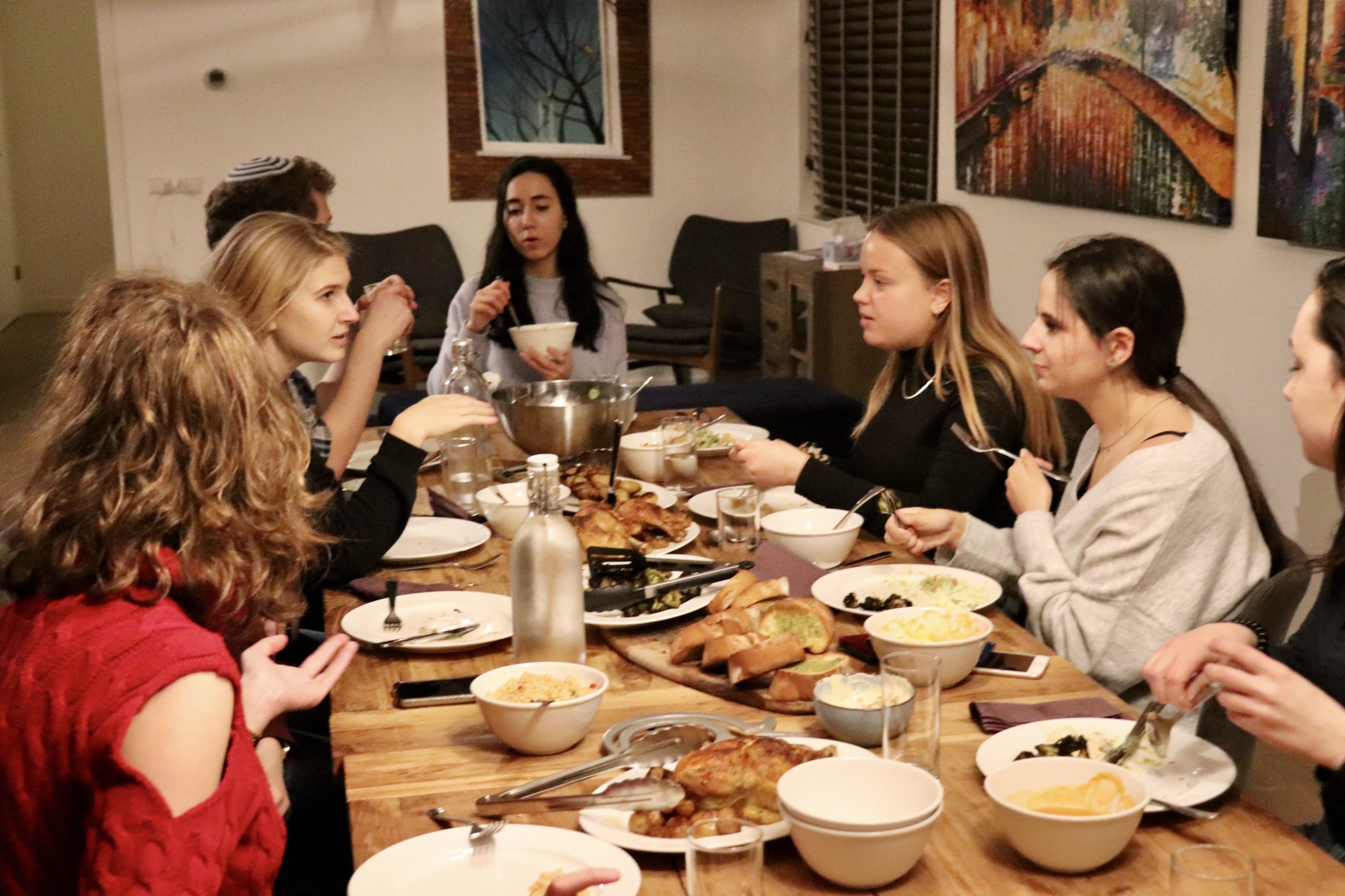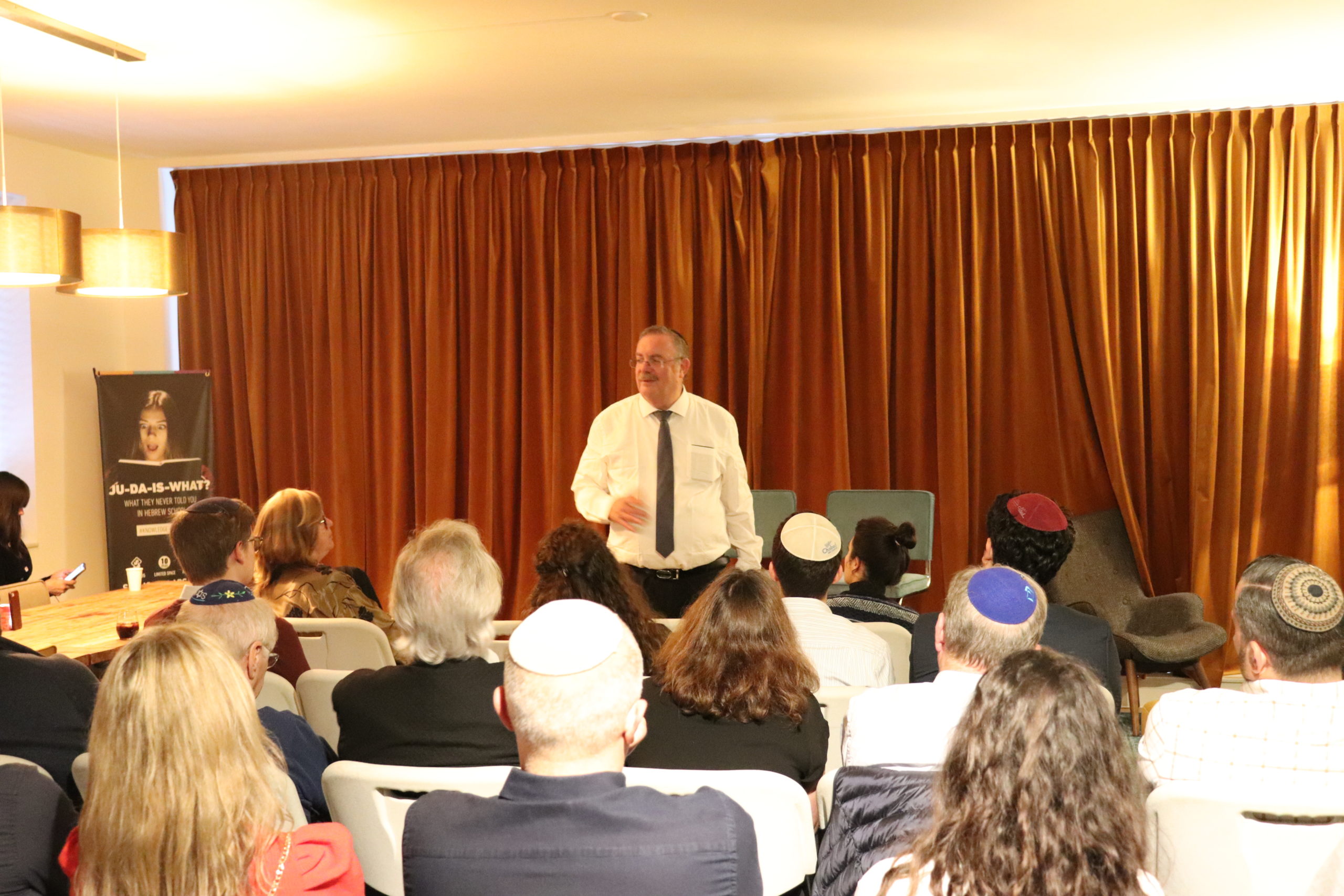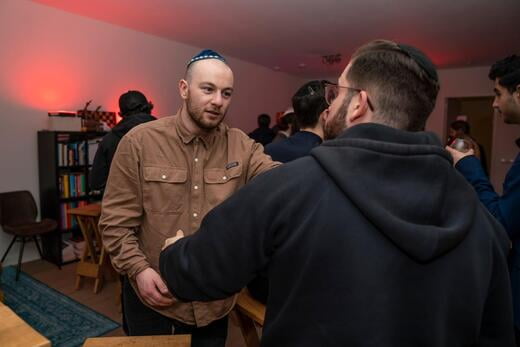A couple of days ago my flatmate was scrolling through her Netflix, looking for a film to watch when she suddenly laughed and uttered: “You are so not invited to my bat mitzvah”. I was intrigued, what was she talking about? She showed me the trailer of this movie, starring Adam Sandler and his daughters. I am not usually a fan of teenage films and can’t remember the last time I watched a coming-of-age teen comedy. But for the sake of this incredible title and Adam Sandler, I had to make an exception.
First I wanted to know how this film came to be and found out that it was an adaptation of the 2005 young adult novel – of the same name – by Fiona Rosenbloom. And even though I find nepotism in Hollywood to be a tricky topic, the fact that Sandler’s two daughters and his wife are also in this film, sparked my curiosity to experience this family affair. Now, after watching You Are So Not Invited to My Batmitzvah, my opinion of teenage films did not change, as I still struggle to enjoy these bittersweet predictable tales. However, the relatable Jewish aspects did put a smile on my face.
There is a clear difference between how Jews are portrayed in the media in the US compared to Europe. In the US there seems to be a wider range of stories that involve casual Judaism, without trying to label it or center the whole story around it. Now don’t get me wrong, a film with the word Bat Mitzvah in the title clearly has a Jewish connotation, but this film could be about a Quinceañera or even a birthday party, and it wouldn’t change much to the story.
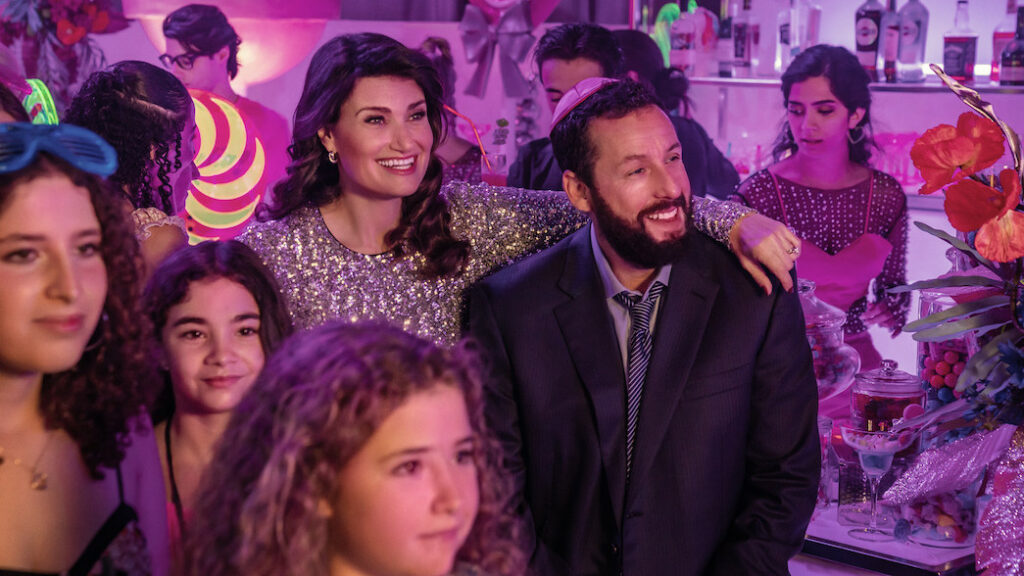
To my surprise, many people (who do enjoy teen coming-of-age comedies) watched this film without even knowing what a Bat Mitzvah was. It became a widely googled topic all over the world, with people even searching what religion was prevalent in this film. Even though I assume that most people somewhat know about Judaism, there seems to be a massive part of the population – yes, even in western society – that doesn’t have a clue.
I always find that the best way to overcome prejudice is transparency. The more you truly know about a certain culture, the more familiar it becomes. As humans, we are inherently scared of what we don’t know, which makes it easy to make assumptions about the cultures that are alien to us. This is where stereotypes and dangerous assumptions can come into play, because we don’t know enough to question the information that we are given.
Therefore, I believe that films like these are an incredible tool to casually explain parts of Judaism in an entertaining way. It is portrayed on a mainstream platform, with an actor that most people know in a popular genre. I love the simplicity with which a thing that is so fundamentally Jewish is depicted in a neutral way. Because I assume that when we think of Jewish stories, most of us assume that it will have something to do with antisemitism or the Holocaust. These are, of course, topics that are important and must also be addressed. But it is refreshing to see a story like this one, that is just so calmly and comically Jewish.
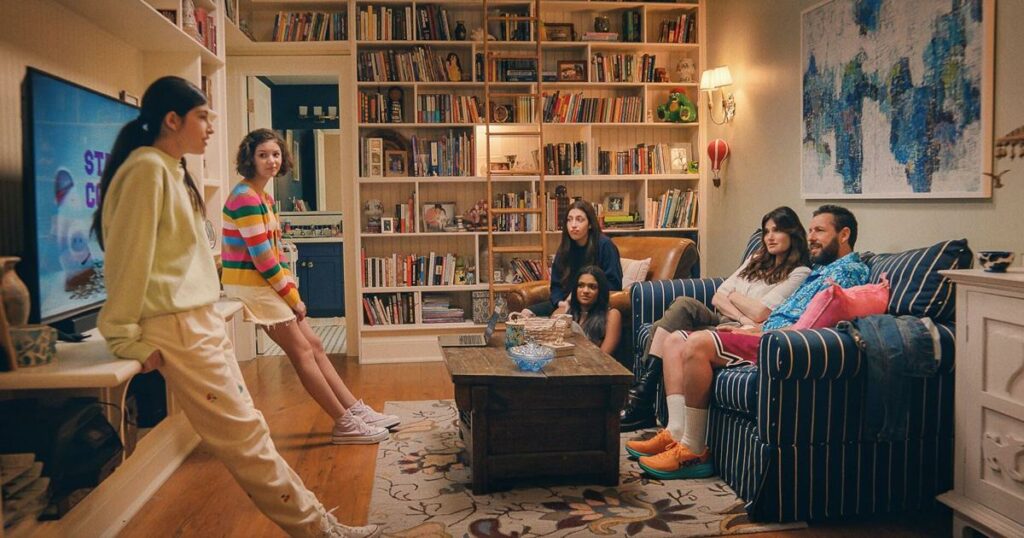
Then I suddenly remembered my time in university. In the first year I met someone from Hong Kong who knew very little to almost nothing about Judaism. He once asked: “Didn’t the Jews invent Hanukkah because they were jealous of Christmas?” During that time I also made a friend – from Croatia – who told me that I was the first Jewish person she ever met. It wasn’t the first time someone had said this to me, and it certainly would not be the last.
My hope for the future is that we will find more Jewish representation in stories like these – not only in the US, but all around the world. Media is a great way to present our culture to people who maybe aren’t so familiar with Judaism. And the more we are portrayed in this way, the less alien we become to those who might not know much about our people. At the end of the day there are two things that connect us all: stories and our basic human experience.

